Hyundai to focus on fuel cell vehicles to benefit from government subsidies in China
After a turbulent year of declining sales and disagreements with its Chinese partner and dealers, Hyundai is now turning to fuel cells and other alternative drive systems. The Group is responding to the Chinese government’s call for investment in zero-emission vehicles, as well as connected and autonomous driving. Hyundai is attracting potential customers in China for its ix35 EV fuel cell-powered SUV model, as well as the recently-released Hyundai Nexo successor. It benefits from the experience of developing the ix35, which is the first serial-produced fuel cell car. In this process, hydrogen gas reacts in an electrochemical reaction to electrical energy, heat and water. There are no exhaust gases or emissions, so it is considered to be a particularly environmentally friendly engine for vehicles.
An announcement from the Chinese Ministry of Industry and Information Technology highlights fuel cell vehicles as an important part of alternative drive concepts. This step is also followed by the local government in Shanghai, which again confirmed the promotion of fully electric or fuel cell powered cars. Other drives or technologies would not be supported.
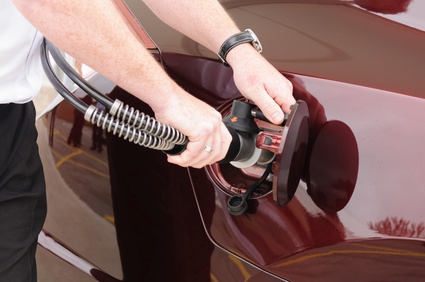
Hyundai owns $15.5 billion in manufacturing facilities, development facilities and data centers in China. Last year they had to struggle with various problems. They had to stop production in four factories because of material shortage at their suppliers. This included the local partner BAIC Motor Corporation, whose managing director was replaced after the incident. In addition, political tensions on the Korean peninsula between the US and China have caused many customers to lose confidence in South Korean brands.
The company will now increase the focus on the development of new models, which are more attractive to customers and equipped with environmentally friendly drive concepts. Following a slump in sales of 36 percent in 2017 sales of 900,000 new vehicles in China is expected next year, together with subsidiary Kia Motors. There are also plans to work more closely with local suppliers and reduce tensions with BAIC Motor Corporation.
Vehicles and many components have to receive the China CCC (China Compulsory Certification) in order to be marketed in the Chinese market.
For more information on how CCC certification may affect your company, or for more information about CCC certification in general, the process and the associated costs, please visit our website and our News Section where you will find updates twice a week.
Please do not hesitate to contact us for further details and consultation. You can contact us via Email, or call us (UK: +44 2071931135, Rest of Europe: +49 69 2713769150, US: +1 773 654-2673).
You can also check out our free CCC-Brochure, which can be downloaded right here as a PDF file, or you can consult our English textbook “A Brief Guide to CCC: China Compulsory Certification”, which can be found directly hier on Amazon.
China’s importance to Audi as a sales market and production facility is steadily rising
The Ingolstadt-based company headquarters recently reported good news about the business in China. In addition to record sales in 2017, the largest number of Audis was sold in China with around 600,000 vehicles. The majority of it, 545,000 units, was also produced there and only a small number was imported. This shows the significance of China for Audi as a sales market and production facilities. Therefore, it was announced now, along with the existing joint venture FAW-Volkswagen to present 16 new models this year for the Chinese market, of which four have an electric drive. The range includes among others a long version of the A8 and Q5 as well as a world premiere the luxury SUV Audi Q8.
The stronger focus on SUVs is part of Audi’s new China strategy. Already every second new car sold in China and North America is an SUV, with an upward trend. Audi would like to profit from this and get a share of 50 percent in the SUV market. CEO Stadler announced that in the coming years, seven out of 10 new Audi SUV models in China will be produced by the local partner FAW. As part of this announcement, Audi’s 30th anniversary in the Chinese market was also celebrated. “We are proud to be the first premium-class car manufacturer who has gained a foothold in China at this time”, says Stadler. With the regional development and production, the traditional German manufacturer can better adapt to the local circumstances and needs of the customers. The number of models produced by Audi partner FAW is set to double over the next five years.
Audi has a majority of its vehicle models and components certified with the CCC certificate (China Compulsory Certificate). The MPR China Certification GmbH was also able to provide active support through various consulting engagements.

For more information on how CCC certification may affect your company, or for more information about CCC certification in general, the process, and the associated costs, please visit our website and our News Section where you will find current updates twice a week.
Please do not hesitate to contact us for further details and consultation. You can contact us via e-mail, or call us (UK: +44 2071931135, Rest of Europe: +49 69 2713769150, US: +1 773 654-2673).
You can also check out our free CCC-Brochure, which can be downloaded right here as a PDF file or you consult our book (in English) “A Brief Guide to CCC: China Compulsory Certification”, which can be found directly here on Amazon.
CCC Certification for All Types of Pneumatic Tires Now Mandatory
On August 1, 2016 we reported in our news section on the introduction of the China CCC requirements for pneumatic tires for different vehicle classes. The article can be found here.
As reported at that time, the new Implementation Regulations for the CCC (China Compulsory Certification) certification of pneumatic tires for cars, trucks and motorcycles came into force on January 1, 2016. One month later, on February 1, 2016, the corresponding GB standard for car tires (GB9743-2015) and truck tires (GB9744-2015) followed.
A transitional period until December 31, 2017 was set by the authorities for the manufacturers to make the changes and have the opportunity to certify their tires according to the Chinese standards.
Since January 1, 2018, it is no longer possible to import non-certified pneumatic tires for vehicle categories M, N, O and L to China.
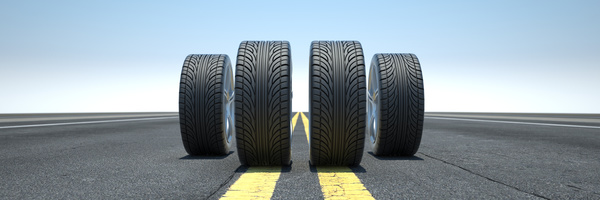
The Chinese press reported that tires that were not certified or did not meet the applicable labeling requirements have already been seized in roughly 2,000 cases. The seized tires were either returned to the manufacturer or destroyed on site.
Correctly marking of the tires is essential. Even with a valid CCC certification the import without correct labeling is not possible. Incorrect markings can cause the tires to be rejected entry into China or seized.
If you have any questions about the certification, or correct marking of pneumatic tires for motor vehicles and passenger vehicles, please do not hesitate to contact us directly. You can reach us by e-mail or telephone (Europe: +49 69 2713769150, UK: +44 2071931135, US: +1 773 654-2673).
For more information on CCC certification in general, its process, and related costs, please visit our website and news section, where you can check for updates twice a week.
You can also download our free CCC brochure here as a PDF file or take a look at our book “A Brief Guide to CCC: China Compulsory Certification”, which you can order here directly from Amazon.
Reduction of Chinese Tariffs on Cars Announced
In a speech at the 17th annual Boao Forum for Asia, on the Chinese tropical island of Hainan, Chinese President Xi Jinping announced the reduction of duties on imported cars. According to President Xi, the reduction would be expected for later this year. Currently, the import duty on vehicles is 25 percent. In addition, limits on foreign ownership of Chinese companies in shipbuilding, aircraft and automotive industries will be lifted in the future.
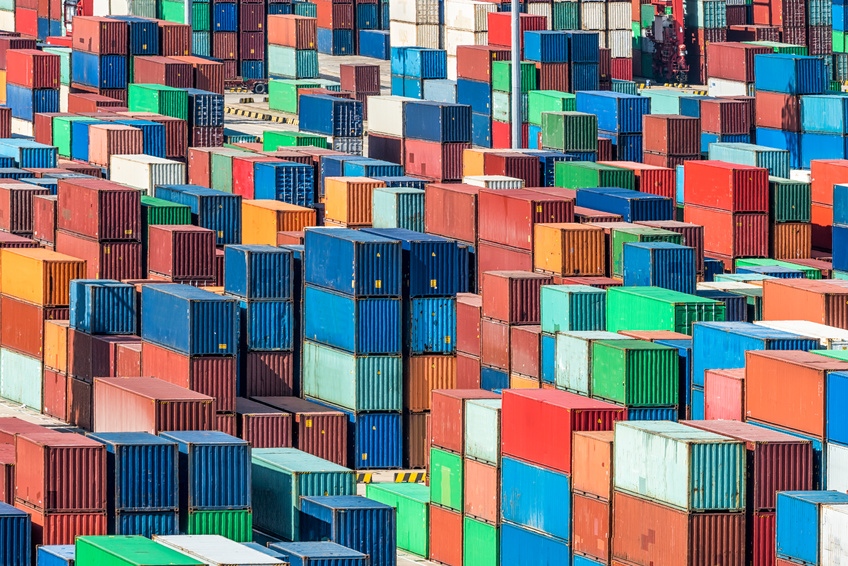
The announcement of import tariff reductions came after the threat of US President Donald Trump to impose high punitive tariffs on product groups worth around 100 billion euros. If the proposed reduction is implemented in China car manufacturers producing vehicles for China in Europe, the US and elsewhere outside China would benefit.
Please visit our website and our News Section where you will find current updates twice a week.
Please do not hesitate to contact us for further details and consultation. You can contact us via e-mail, or call us (UK: +44 2071931135, Rest of Europe: +49 69 2713769150, US: +1 773 654-2673).
You can also check out our free CCC-Brochure, which can be downloaded right here as a PDF file or you consult our book (in English) “A Brief Guide to CCC: China Compulsory Certification”, which can be found directly here on Amazon.
Chongqing gives green light to road tests with self-driving cars
In mid-March 2018, a directive was published by the city administration together with the economic authority and the local police. Automobile manufacturers are now allowed to carry out test drives using self-driving cars on certain roads at fixed times. In the vehicles, a driver is still required to intervene in an emergency. He is also responsible for any damage or accidents. The vehicles must be able to seamlessly switch between conventional control and autonomous driving and be equipped with sensors and cameras for monitoring the driving behavior and the location.
Changan Automobile, a Chongqing-based automotive group, also announced that it will set up a test site for autonomous vehicles later this year. The company is one of the technology leaders for self-driving cars in China. Already in April 2016 two driverless cars easily completed a 2,000 km long test drive to Beijing. Changan plans to launch these vehicles this year. Domestic competitors in this discipline include BAIC, GAC, SAIC and BYD.

The online search engine Baidu, the Chinese counterpart to Google, has also announced to research self-driving cars. A corresponding department was established especially for this purpose. The research center is located in the Greater Beijing area, and the test drives are also held there. Baidu has been working on this technology together with BMW since 2014. It is planned to start series production within 5 years.
Investments in China for assistance systems and self-driving cars reached around 10.7 billion yuan ($1.7 billion), according to a recent study. The research on artificial intelligence in this area is considered the third most important after image analysis and speech recognition.
Cars need a China CCC (China Compulsory Certificate) for distribution in China. This also applies to numerous supplier components where also a China Compulsory Certification is needed.
For more information on how CCC certification may affect your company, or for more information about CCC certification in general, the process, and the associated costs, please visit our website and our News Section where you will find current updates twice a week.
Please do not hesitate to contact us for further details and consultation. You can contact us via e-mail, or call us (UK: +44 2071931135, Rest of Europe: +49 69 2713769150, US: +1 773 654-2673).
You can also check out our free CCC-Brochure, which can be downloaded right here as a PDF file or you consult our book (in English) “A Brief Guide to CCC: China Compulsory Certification”, which can be found directly hier on Amazon.
China Combines Three Major Institutions into State Market Regulatory Administration (SMRA)
China’s government recently unveiled plans for a reform of numerous administrative bodies. In total seven new ministries will be created following the reform. Already at the end of March, the new State Market Regulatory Administration (SMRA) was set up as a direct subordinate agency under the State Council. The newly established institution consolidats the major authorities responsible for market oversight within one big administrative house. Hence, the following governmental bodies will be absorbed by the SMRA and no longer exist:
- State Administration for Industry and Commerce (SAIC)
- General Administration of Quality Supervision, Inspection, and Quarantine (AQSIQ)
- China Food and Drug Administration (CFDA)
Head of the new institution is Zhang Mao, who previously led the SAIC. A wide range of areas will be covered by the SMRA, including amongst others, commercial registration, food and product safety and intellectual property rights.
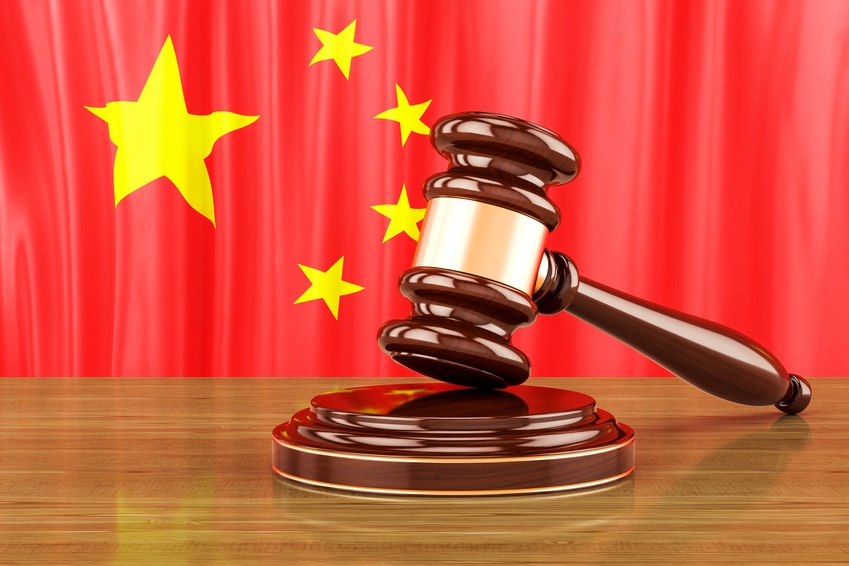
For the healthcare and pharmaceutical sector, a new drug authority, the China Drug Administration (CDA), will be formed under the aegis of the SMRA after the abolition of the CFDA. At the local level, provincial branches shall be established all over the country in order to handle regulatory duties for medicines and medical devices.
All companies and organizations in the relevant industries should closely monitor future developments of the SMRA. Whether the new agency will continue to fully enforce existing regulations, e.g. CFDA registration of cosmetics and medical devices, issued by their predecessor institutions, is currently not clear yet. However, it is very likely that the new administrative structures will be used as a basis for further policy changes.
For more information on how the new regulations might affect your company, please visit our website and our News Section where you will find current updates twice a week.
Please do not hesitate to contact us for further details and consultation. You can contact us via e-mail, or call us (UK: +44 2071931135, Rest of Europe: +49 69 2713769150, US: +1 773 654-2673).
You can also check out our free CCC-Brochure, which can be downloaded right here as a PDF file or you consult our book (in English) “A Brief Guide to CCC: China Compulsory Certification”, which can be found directly here on Amazon.
BMW is planning the production of an electrically powered Mini in China
BMW and Chinese automaker Great Wall Motors have signed a letter of intent to co-develop and produce a fully electric-driven Mini. In the event of a successful contract, this would be Great Wall’s first foreign partner and the first assembly plant outside of Europe for the Mini compact car.
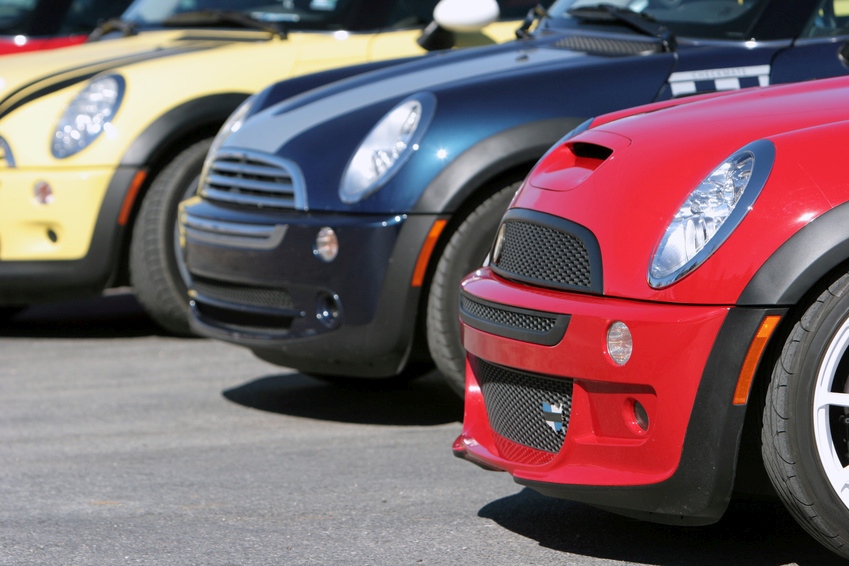
In the following negotiations the choice of a production site as well as specific investment sums will be clarified. Great Wall announced in a press release that the cooperation could improve its technological know-how and give the name a better image. It also promises to increase customer acceptance and to open up the market for electric vehicles at home and abroad.
The first electric vehicle of the Mini brand is based on a study that was presented last year at the Frankfurt Motor Show. It will be based on a completely new platform to be developed with Great Wall and not on the Mini E, which will be produced at the BMW’s Oxford plant starting in 2019. Through the joint development they would be able to focus on the needs and characteristics of the Chinese market. Local suppliers and battery manufacturers also play a role. The Chinese-built Mini could go into serial production in 2021 or 2022.
Automakers and suppliers are struggling to meet strict quotas in China for environment-friendly vehicles. By 2025, 20 percent of all sold cars will have to be powered by electric or hybrid motors. In addition, there are already restrictions in many cities for vehicles with internal combustion engines or incentives for alternative drives.
BWM also intends to expand its existing collaboration and manufacturing with Brilliance China Auto. At the same time, however, they declared that they would not set up another sales organization in China. This could mean that the new Mini will be marketed by Great Wall Motors or under a completely new brand.
For more information on how CCC certification may affect your company, or for more information about CCC certification in general, the process, and the associated costs, please visit our website and our News Section where you will find current updates twice a week.
Please do not hesitate to contact us for further details and consultation. You can contact us via e-mail, or call us (UK: +44 2071931135, Rest of Europe: +49 69 2713769150, US: +1 773 654-2673).
You can also check out our free CCC-Brochure, which can be downloaded right here as a PDF file or you consult our book (in English) “A Brief Guide to CCC: China Compulsory Certification”, which can be found directly here on Amazon.
Daimler AG and Chinese BAIC are planning to build a new assembly plant in Beijing
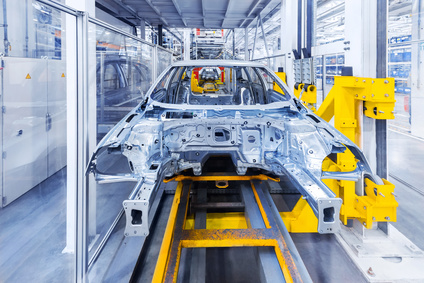
Daimler AG and the Chinese group Beijing Automotive Industry Company, BAIC for short, plan to build a new plant to meet the growing demand for new Mercedes-Benz vehicles in China. With the investment of 1.9 billion dollars, Daimler wants to strengthen its ties to the Asian country and gain additional market shares. The vehicles are produced in cooperation with BAIC and the Chinese Daimler subsidiary BBAC, Beijing Benz Automotive Company. It will produce premium models of Mercedes-Benz and electric vehicle of the new brand EQ.
The new plant is to be built near Beijing in the district of Shunyi. Another part of the plan is the acquisition of an existing production site from BAIC, which is to be converted to produce Mercedes-Benz vehicles. The expansion will allow Daimler to build further capacity for the local manufacturing of batteries and components for electric vehicles. China is currently the world’s largest market for alternative drive cars, or NEVs (New Energy Vehicles).
For Mercedes-Benz, China is the largest and most important market with 430,000 vehicles produced in 2017. The portfolio mainly includes the premium C- and E-Class models as well as GLA and GLC. Already last year, Daimler and BAIC announced that they would be manufacturing electric vehicles and batteries locally in China with a joint investment of € 665 million. As part of this initiative, the first model of the new Mercedes-Benz EQ brand was also presented. The SUV named EQC is scheduled to go into serial production in 2019.
For more information on how a CQC Mark Certification or a CCC certification may affect your company, or for more information about CCC certification in general, the process and the related costs, please visit our website and our News Section. There you can find updates twice a week.
Please do not hesitate to contact us for further details and consultation. You can contact us via Email, or call us (UK: +44 2071931135, Rest of Europe: +49 69 2713769150, US: +1 773 654-2673).
You can also check out our free CCC-Brochure, which can be downloaded right here as a PDF file, or you can consult our English textbook “A Brief Guide to CCC: China Compulsory Certification”, which can be found directly hier on Amazon.


